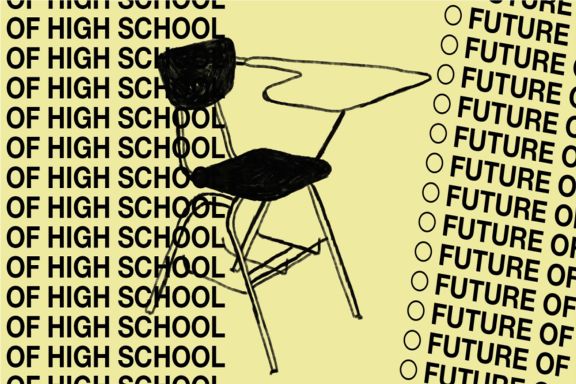New Educator Toolkit to protect data privacy | Parent Coalition for Student Privacy
New Educator Toolkit to protect data privacy
Guide designed to prevent breaches or abuse of personal information
Today, the Parent Coalition for Student Privacy and The Badass Teachers Association released an Educator Toolkit for Teacher and Student Privacy: A Practical Guide for Protecting Personal Data. The Toolkit is a comprehensive guide to help educators deal with the complex world of data privacy and the widespread proliferation of education technology. It is designed to support their efforts to become responsible digital citizens by providing strategies and best practices to minimize the disclosure of personal data and protect the privacy of their students as well as their own.
Through an online survey and focus groups, the authors discovered that most teachers feel they are forced to implement ed tech products which gather and use data in ways they do not understand. Sixty eight percent of respondents said they didn’t know if the products they used sold student data or used it for marketing purposes, and sixty nine percent said that they felt that their training in data privacy had been insufficient.
Teachers are also being asked to share more and more of their own data in ways that violate their privacy. The recent strike in West Virginia was in part sparked by a demand from the state that they wear devices to collect data on their movements and physical activities. In user-friendly terms, the Toolkit explains what federal laws protect student data, what common classroom practices to avoid, and how to advocate for stronger privacy policies at the school and district level.
American Federation of Teachers President Randi Weingarten issued the following statement in support of the toolkit: “As states continue to disinvest in public education, large technology companies have turned their sights on school districts as a lucrative business opportunity. Too often, school districts purchase and implement these aggressively marketed digital programs and resources without having the privacy safeguards and quality-assurance mechanisms in place to protect students and their teachers.
“When used appropriately, technology can be a powerful classroom tool to enhance the learning of students and support the work of educators. But unregulated, technology should never supplant the work that educators do, particularly when exposure to hackers, fraud and infiltration can provide a real security threat. This toolkit helps ensure that digital and new media tools don’t infringe on the safety of our schools.”
Leonie Haimson, the co-chair of the Parent Coalition for Student Privacy explained, “Privacy is a precious if vanishing resource with expanding data collection and use of ed tech tools in the classroom. In a recent public service announcement, the FBI warned that cyber criminals have been hacking into school databases, threatening students with violence and the release of their personal information. It is critically important that educators learn how to safeguard their students’ sensitive information from breach and misuse, yet up to now, most teachers have felt unprepared to do so.”
“We surveyed and interviewed 365 educators from across the country to find that teachers care deeply about their privacy and want to learn more about protecting their own sensitive information as well as that of their students,” remarked Rachael Stickland, co-chair of the Parent Coalition for Student Privacy. She concluded, “Our hope is that this toolkit gives teachers easy access to the resources they need every day to make the best possible decisions to keep personal data at school safe.”
Marla Kilfoyle, former executive director of The Badass Teachers Association explained, “As an educator who has been the victim of an ed tech product that has threatened my privacy, the work that has been done on this toolkit is important to safeguard data for everyone using these products. It has been an honor to work on this toolkit for over a year. I have been an educator for 30 years and this toolkit has taught me so much about my own personal data, how to protect the data of my students, and how to advocate for data privacy in my district.”
President of the National Education Association Lily Eskelsen Garcia said, “The Educators Toolkit for Teacher and Student Privacy” will be a helpful document to educators across the nation as they navigate the complexities of protecting privacy data today. NEA applauds the BATs for their leadership in raising the issue of privacy and creating this resource. This guide can serve as an important tool when used in conjunction with the expertise of local Uniserve [union advocacy staff] or legal counsel when seeking specific guidance relative to an educator’s unique worksite and legislative geography. Today, we need all the good information we can get!”
Melissa Tomlinson, assistant executive director of The Badass Teachers Association stated, “Working on The Educators Toolkit has been an eye-opening experience for me. Armed with this information, I have changed practices within my own classroom around how I use technology in ways to make sure all of my students’ information remains safe.”
As the FBI pointed out, “widespread collection of sensitive information by education technology vendors, such as web browsing history, biometric data and students’ geolocation, could present unique exploitation opportunities for criminals.” It is our hope that teachers, administrators, and union leaders will share this Toolkit, and use it in trainings so that educators better understand how to ensure their students’ privacy and their own.
The Toolkit was made possible by grants from the Rose Foundation for Communities and the Environment, the American Federation of Teachers, and the NEA Foundation.
New Educator Toolkit to protect data privacy | Parent Coalition for Student Privacy
























